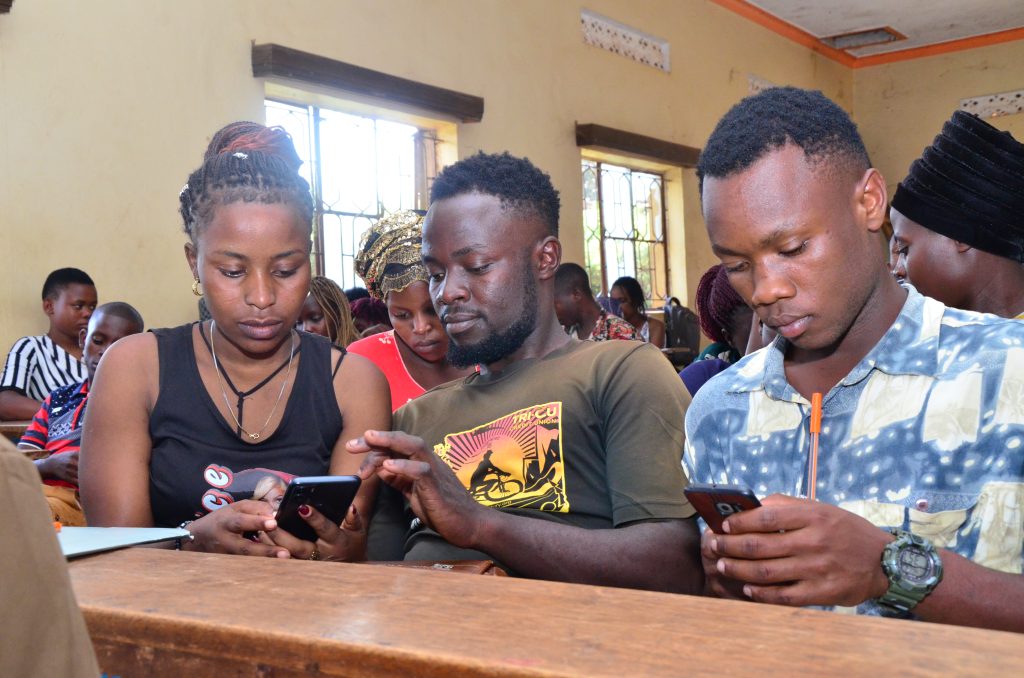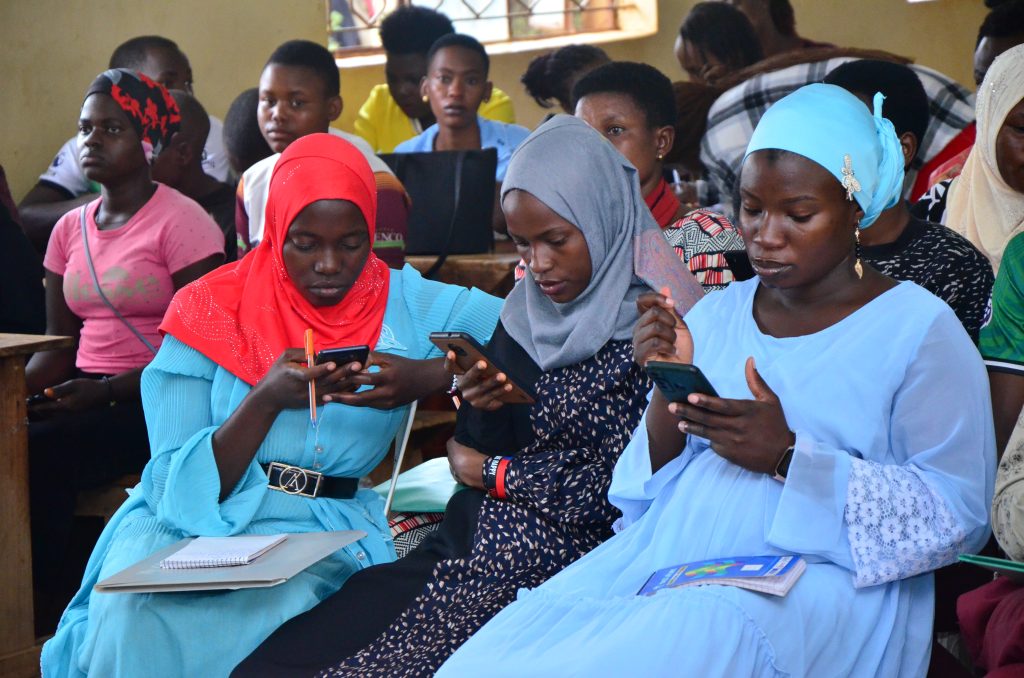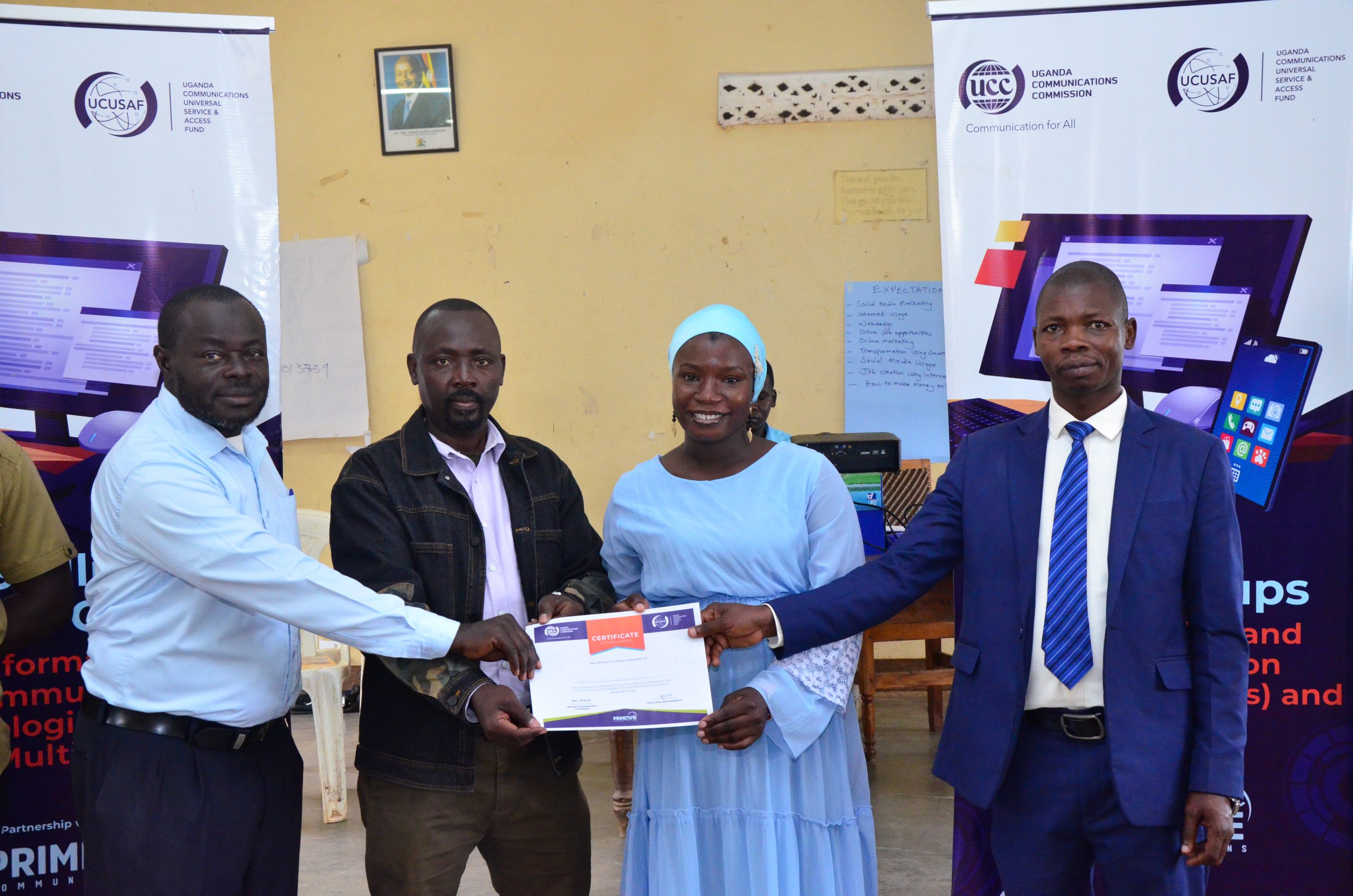By Adam Walusimbi
At the Kyazanga Town Council headquarters in Lwengo District in greater Masaka, trainees pay attention
to every detail as their trainers explain how to design a graphics card for marketing a product using the
free smartphone app, Canva. From colour selection, font selection, image placement, and integration,
the trainees follow along on their smartphones, creating designs unique to their business ideas.
One of the trainees is Earnest Kaitare, a senior six leaver who recently took up poultry farming to raise
funds for university tuition fees. Kaitare’s poster design features pictures of a chicken and eggs with text
that reads “20% Eid Discount on all products. Order Today.”
Kaitare’s strategy aimed to increase sales during the Eid Al-Adha celebrations that was held on June 16,
2024, when Muslims celebrated by sacrificing animals and holding feasts. Once completed, Kaitare
intended to share the poster on social media and print and distribute posters and flyers in Kyazanga,
which has a large Muslim community.
Kaitare is one of the youths from five selected districts in the greater Masaka region who were trained
and as part of the digital skilling program of the Uganda Communications Commission under the Uganda
Communications Universal Service and Access Fund (UCUSAF). The skilling program implemented in
partnership with Prime Time Communications is aimed at enabling youth to create and/or find
sustainable jobs.
According to Kaitare, the training has been an eye-opener, especially on how the use of free mobile
applications like Adobe Express, Kine Master, Canva, TikTok, among others could help expand his
customer base and boost sales online.

UCUSAF and Prime Time Communications in Lwengo District.June 6, 2024.
With the skills acquired from the training, Hadijjah Nanteza will enhance her work as a general
merchandise salesperson by using short videos and multimedia content. This would allow her to share
videos and pictures of her products, expanding her customer base beyond Kyazanga and increasing her
commissions, without the need to travel from house to house.
In Kalungu District, trainee Winfred Nalusiba described the digital training as ‘eye-opening’ in regards to
the mobile apps she often overlooked on her phone. “We learned how to effectively use Google Meet to
connect with other people. As a caterer and event planner, I can now plan efficiently with clients even
when we are not in the same location, using video to show them the various decorations and meal
options,” said Nalusiba.
Bugembe Cyrus Miller, a trainee from Kalungu, who has always used TikTok for socializing, now plans to
venture into social media influencing, thanks to the videography and social media skills acquired during
the training.

digital skills training under UCUSAF and Prime Time Communications in Lwengo District. June 7,
2024.
Speaking to trainees at the Mateete Sub-County Headquarters in Sembabule District, Eng. James
Beronda, the UCUSAF Director, commended the youths for their enthusiasm in acquiring new skills
which would enable them to earn extra income using their smartphones. Eng. Beronda emphasized the
importance of using the skills acquired during the training to generate income using their smartphones,
instead of using them for non-productive activities. He reaffirmed UCC’s commitment to supporting
digital skills acquisition to boost youth incomes and combat unemployment in Uganda.
Eng. Susan Nakanwagi, the UCUSAF Technical Manager said that the digital skilling program, currently in
its third year, will be extended to include more underserved districts in the 2025/26 financial year due to
its significant impact and success among targeted youth. Eng. Nakanwagi confirmed that many young
people in these districts have had smartphones for a long time but lacked the skills and knowledge to
use them effectively to improve their livelihoods.










